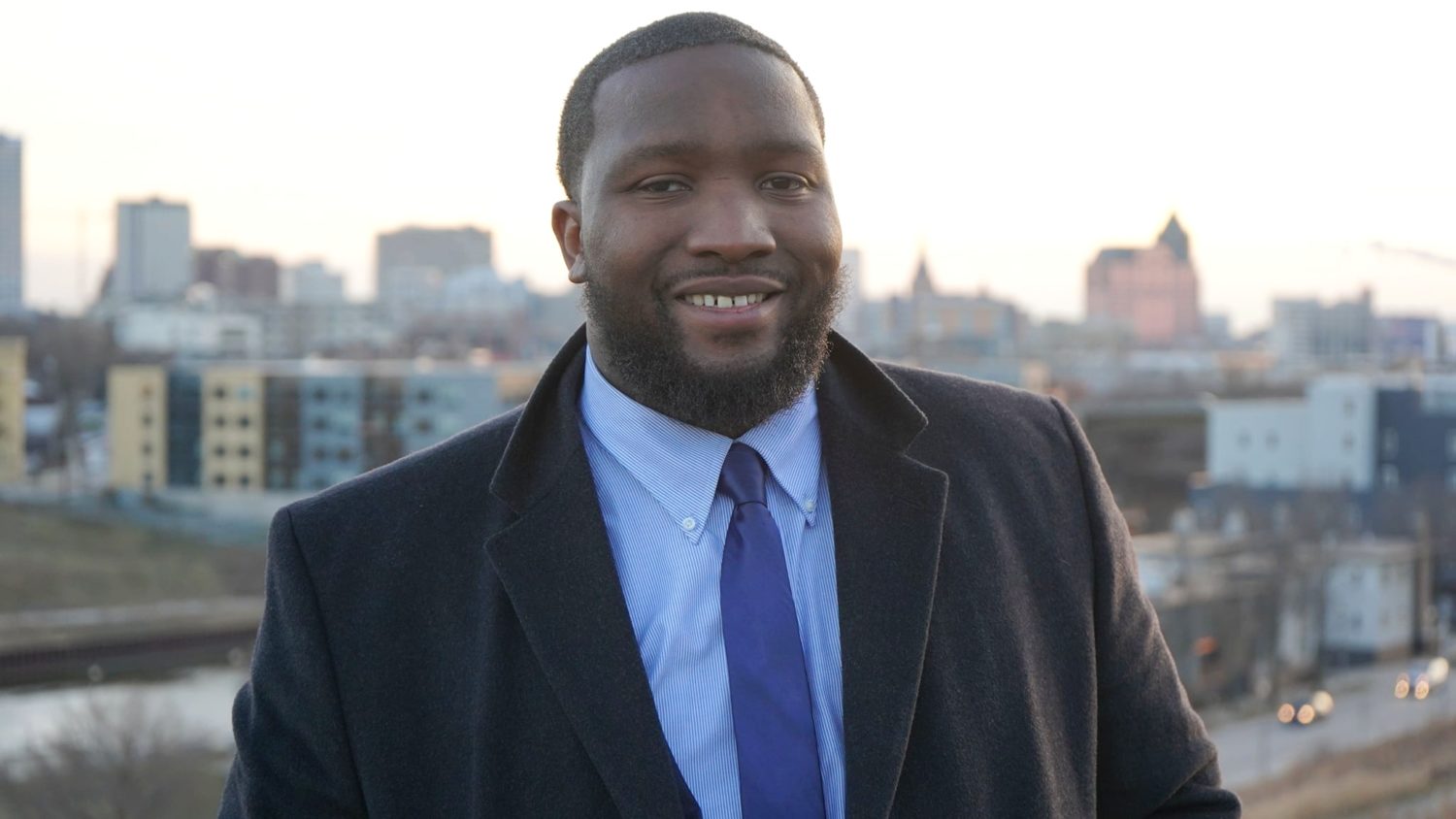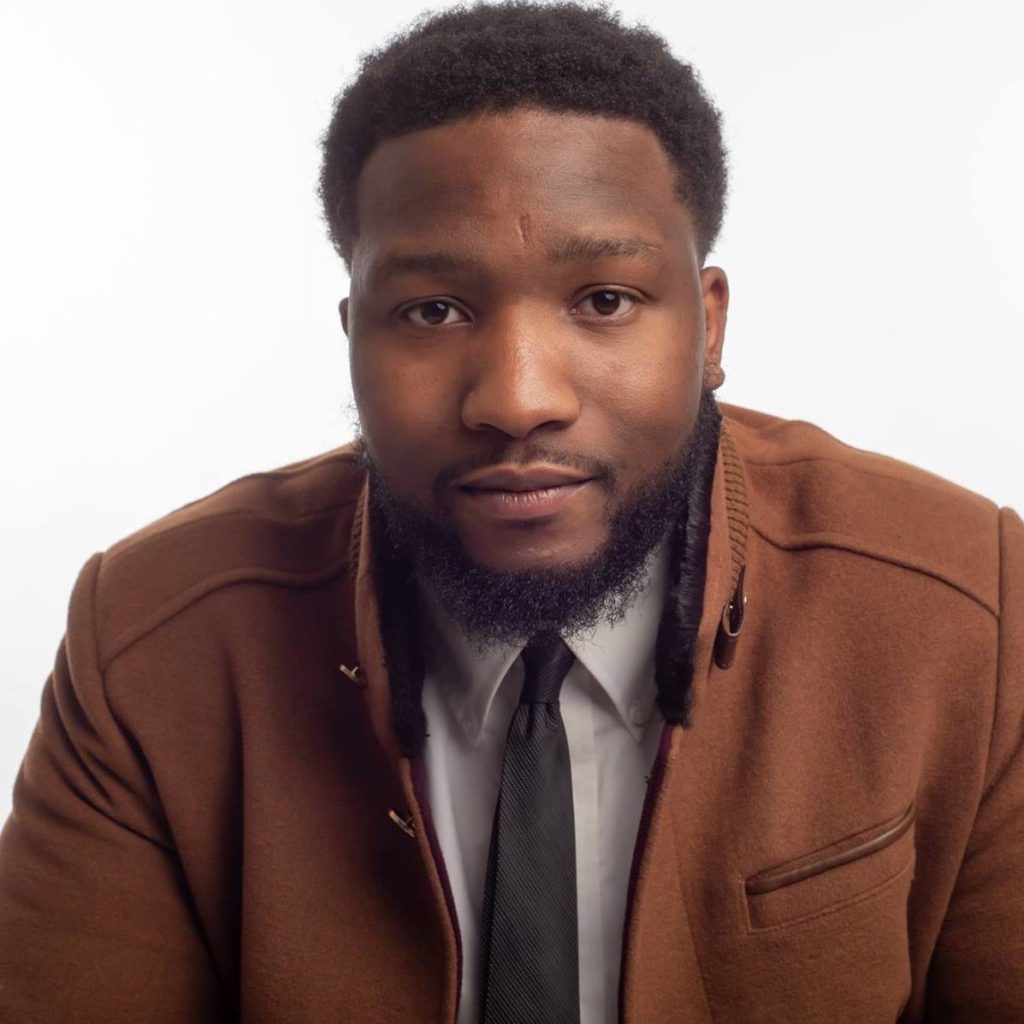
With the stream of campaign commercials and the ‘do we have your vote?’ texts that may pop up on your phone, it’s no surprise that election season is in full swing. From governor to the state senate, citizens have many important decisions to make that will impact not only themselves but their communities as well. Darrin Madison is fighting to make sure constituents know their options and where he stands in the political landscape. The Milwaukee native is focused and determined as he runs for the District 10 seat of the Wisconsin State Assembly.
The seat has been held by State Rep. David Bowen since 2015, who has decided not to seek reelection as he campaigned statewide for Wisconsin lieutenant governor. Bowen ended his bid for lieutenant governor on June 1st after the death of his mother.
Madison is a strong voice for the people, confidently sharing his views on many of the pressing issues in society today. He wants to be an advocate for his city, and he cites many concerns within the community stemming from inequality among shared revenue, preventing local municipalities from the ability to budget effectively and create desired change. “Having the right advocates in Madison can be a solution to that,” he says.
Education is one of the many issues Madison is passionate about, particularly what he describes as a strong need for education reform in the state. “[Education] needs to evolve with the circumstances and adapt to the needs of another generation. We can’t teach the same way we taught 20 years ago,” he says. He believes the Montessori method is a prime example schools could follow, in youth earning not only academic but also real world skills. “If education isn’t holistic, and it doesn’t take realistic approaches from young people’s lived experiences, there’s so much that people miss and they won’t understand how it ties.”
He also fights for the rights of young people in the justice system. Formerly working at Youth Justice Milwaukee, he worked with legislators to pass 2017 Wisconsin Act 185, in an effort to restructure the state’s juvenile correctional system. The law calls for the closing of youth correctional facilities Lincoln Hills School for Boys and Copper Lake School for Girls, in Irma, WI. However, Madison says the goal was to close all state youth prisons. “Even if they’ve committed heinous crimes, we can create a space for them, that doesn’t have to be this huge, traditional prison,” he says. “Those young people are dealing with ACES [Adverse Childhood Experiences] and other forms of trauma that need to be addressed. They need true rehabilitation, not to sit in a cell like animals.”

His dedication to activism and social reform was ignited when he was 9 years old, frequently visiting the Urban Ecology Center in Milwaukee. “That’s where I fell in love with the relationship between sustainability and urban communities. That became my passion,” he said.
He later met members of Urban Underground, a youth organization that centers on youth-led social change, and knew he wanted to be part of the movement. It was at this organization where he learned the value of youth using their voice to empower their communities. “A lot of times, people, especially folks in positions of power, have conversations about young people without them, saying that they don’t understand how to make their own decisions in reality. I have a strong belief that the folks who are directly impacted by the problems are the closest to the solution,” Madison says.
He studied at Howard University in Washington, D.C., where he majored in biology and political science. The double majors were a reflection of his dual passion for policy and sustainability. It’s this passion that fuels Madison’s efforts, especially in such a socially and politically challenging climate. He understands how difficult times are, especially for the Black community. Many in the community know of the long standing issue of Black citizens not educating themselves on politics or participating in elections, largely believing their vote will not result in effective change.
This directly impacted Madison’s former role as the democracy organizer for the African American Roundtable. During this time, he was launching an initiative that focused on educating Black people on the roles and responsibilities of every elected official that represents them. The initiative even took a further step, in also educating on the various political departments and how they impact citizens’ lives. “It’s the responsibility of an elected official in their office to educate the folks that they represent, on what they have control over, and how they can have agency over their own lives, through their representation,” he says. “It’s my goal, as a representative, and as someone who could be creating laws in Madison to do that directly with the community.”
He believes the relationship between constituencies and leadership should be more symbiotic. This is why he not only identifies as a member of the Democratic Party, but as a Democratic socialist. A member of the Democratic Socialists of America, he drafts policies alongside community members. But despite such efforts, he knows the challenge remains in the legislation that is passed that prevents certain changes from taking effect. The overturning of Roe v. Wade is a glaring example of this. “It’s crazy to live in a state, in a country and at a time where guns have more rights than women,” he said. “We have more access to killing a person than women have access to their own autonomy.”
Madison points out how the decision is a direct result of the elected officials, mostly men, who refuse the division of church and state. “We need to effectively restore women’s rights in totality,” he says. He says the Roe v. Wade overturning is a grim foreshadowing to the reversal of rights for minority communities. “The reality is that if we don’t do what we need to do right now, right here right now, it’ll continue to happen,” he says. “That’s another reason why I’m running in this race.”
For those who have become discouraged from the many setbacks in society, Madison says, “In this moment, right now, there’s a wave of young people who are rising up to take action because they haven’t lost their hope. They believe there’s a pathway to change and that we’re not too late. I’m one of those young people. I believe that we can do so much to ensure that we are building a future that future generations can thrive in.” He is aware of the challenges that come with such goals, but his determination is unfailing. “I’m willing to put in the work, I’m willing to commit to taking action, even when I lose, I’ll get back up and I’ll fight again.”
He also encourages those who are inspired to become politically involved to reach out to him, find a political home, and get involved in whatever way they can. “Everyone can be moved and every enemy can be out organized,” he says. “The pathway to change is like a game of chess and the person with the best strategy can win. So refine your strategy, take action and make the change you want to see.”
Primary election day is Tuesday, Aug. 9, with Madison facing Glendale mayor Bryan Kennedy for the Democratic nomination. There is no Republican running for the seat.



